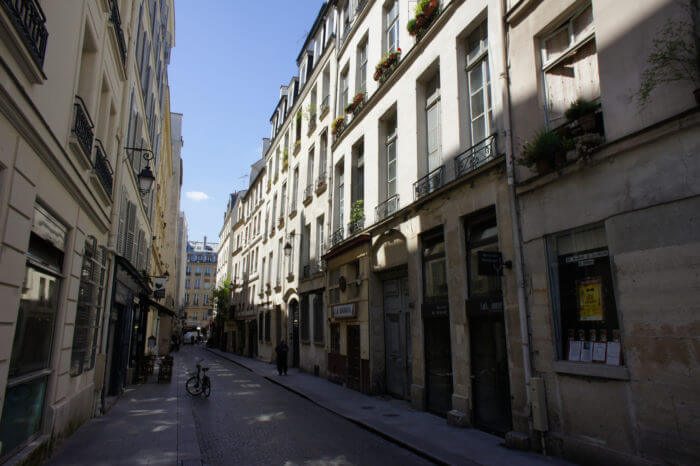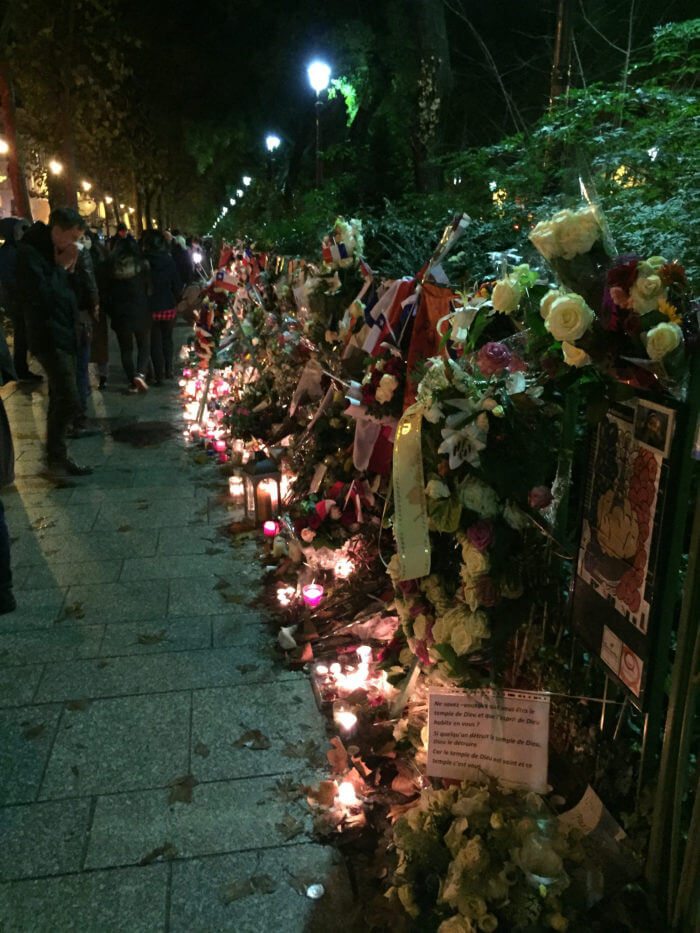‘Paris est une fête’: Grin it, bear it, keep being European
Paris est une fête, truly.
Breaking through the dense Parisian accents filling the smoggy air is difficult, but the reward is ample: expect to hear conversations on matters ranging from Matisse to Montaigne, Marine Le Pen to movements in money markets. The café culture is alive, and so too is the tradition of cultivated conversation it carries. Artists and authors, tourists and thieves, all the world rubs shoulders on the chaotic streets of the city centre.
Yet the bustling boulevards are now prowled by a news species – the green-suited military men. Their presence is understandable, as at the very least they provide a feeling of added security. Yet their existence asks an important question: how are we to react to this ‘new normal’, wherein society is permanently on high alert for the next attack?
A brief first response is to react however you damn well please.
If you want to lock yourself in your room and take up a forty day fast, go ahead. We can leave prescriptive idealising to the prescriptive ideologues. Forgive me then for putting out a democratic take-or-leave proposition – we should continue to be European.
This means more than just smoking in the street and mindless consumption; it means open debate, public organisation, and ubiquitous tolerance. Perhaps this view is a touch romantic, and I do not intend to propose that the European way is either uniform or perfect. However, if we are to want change, please, let it be positive and progressive, not a fearful, reactive reform.
Why then, should we go on living the ‘European’ lifestyle? A response can be found in both a negative and positive case.
The negative case highlights that reactivity can never beat terrorism. Following the Brussels attacks, there have already been calls to introduce airport ‘pre-security’, to prevent would-be-attackers from getting as far as the check-in gates. But what does this solve? You would have to set full body searches as far as the city borders before a tangible ‘secure zone’ could be established.
It should not need to be added why this Panopticon-style state surveillance is undesirable. The difference heightened surveillance and security spending can make is minimal – we are not fighting an army, but a collection of deranged individuals, and if the last few years have taught us anything, it is that despite tiers of precaution, it is remarkably easy for an Abdeslam, a Bakroauie, or a Breivik to slip through the system and wreck considerable damage.
As such, these fights are not to be won from the top down. If there is a solution, it will probably, as with the case of the IRA, reside in integration and reconciliation, not reactivity.
As for the positive case, we can highlight that the success of a terror attack lies not in the fatality count, but the effect that it has on our everyday lives.
It is measured by whether we avoid crowds, concerts, and transport; by whether we eye foreigners, or loners, with hostile suspicion, and jump at any behaviour that doesn’t fit to docile conformity. Effectively, it is measured by the extent to which the buzz of a modern European city is dampened.
We need only to look at the egregious destruction of city vibrancy in Raqqa, under the boot of Da’esh control, to see the irony of choosing to form an anti-vivacious society – letting go of European liberality, indeed, feeling terror, would be fulfilling the task of the terrorists. Innocuous though they may sound, visiting capitals, drinking coffee in the streets, going to gigs, philandering and philosophising are perhaps our best weapons in the fight against 21st century terror.
Terror that targets the living of life is, at its most basic, nihilistic, and so the greatest resistance lies in the affirmation of existence. How then do we handle the grip of global terror?
Not by throwing up fences, not with thoughtless apologist aphorisms, and not with virtue-signalling, half-baked moralism – but with Dunhills, Dolce, drinking, debate, dilettantism, and, above all, by doing as we have done before.



Comments